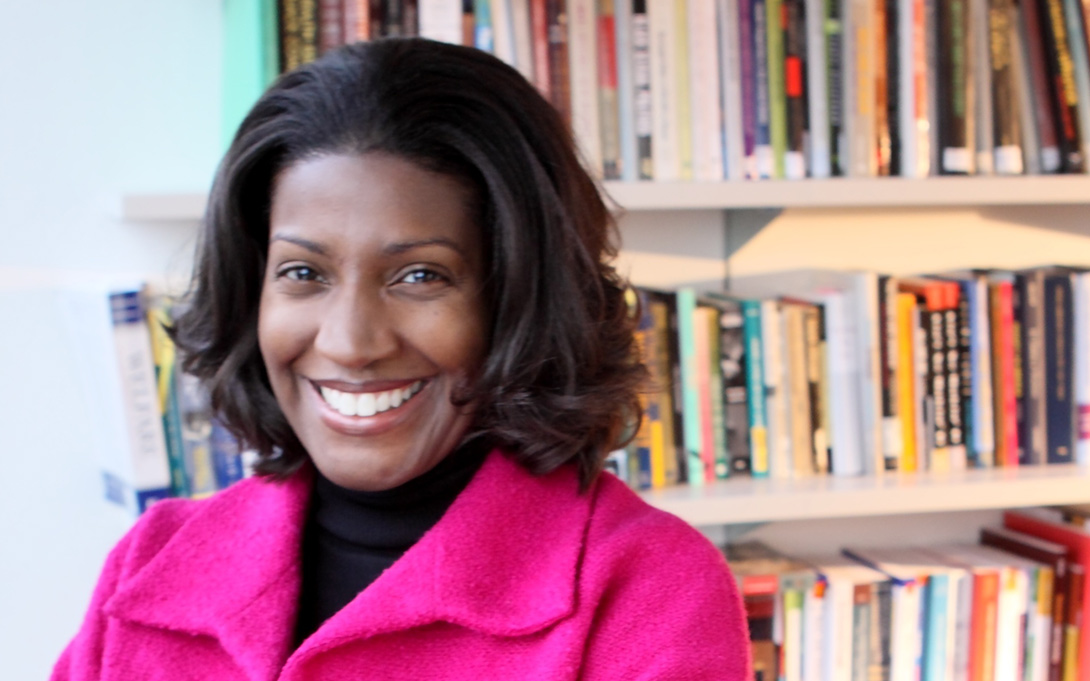
By Olivia Bradish (BA ‘23)
From childhood, sociologist and new associate dean Celeste Watkins-Hayes was interested in social justice. She says she is "grounded in an upbringing where she was acutely aware of the consequences of inequality and the promise of opportunity." In 1969, her parents moved north from the segregated South when her dad was recruited to train for a bank management job in Detroit—a possibility not open to all Black people at the time.
"This was when you were just starting to see corporate and financial sector jobs open up to Black people after the Civil Rights Movement," Watkins-Hayes recounts. "Most Black people at that time were grappling with some form of economic precarity because of being shut out of opportunities or relegated to the bottom rungs of the economic ladder. So, the fact that my dad got this job was a big deal. It ended up putting us on an upwardly mobile economic trajectory, but we were always very clear how fortunate we were and how the majority of Black people when I was growing up did not have access to that kind of job ladder. Talents often go unrecognized and unrewarded in a racialized society."
Watkins-Hayes attended Spelman College, where Dr. Mona Phillips showed her how sociology could help her analyze the world around her. Dr. Johnnetta B. Cole got her excited about higher education as a way to influence the world. These experiences and the tools she gained inform her personal mission statement, which drives her research, teaching and leadership: "I seek to address the dynamics that limit human potential by confronting and challenging the barriers and strengthening the opportunities, paths, and resources in the service of equal opportunity for all." This fall, Watkins-Hayes founded the Center for Racial Justice, which seeks to advance the systematic fair treatment of people, regardless of their racial background—and a world in which all people are able to achieve their full potential in life.
In addition to evidence-based research and analysis, Watkins-Hayes sees the center as a space to create crucial discourse around racial justice, advance community learning, and take steps to achieve racial justice. The center hosted a series of conversations with activists and scholars working at the intersection of race and public policy this fall. There are plans for a visiting fellows program that recognizes the transformative work of social justice changemakers (activists, artists, advocates, and scholars) and creates a hub for like minds to challenge conventional ideas and develop policy solutions.
"What I'm really excited about is creating an opportunity for people to realize their vision," she says. "I see myself as the director, the conductor, but all of us have instruments to play in this conversation on racial equity. All of us have interesting ideas and many of us have things that we want to bring to fruition. I'm looking forward to helping people realize that, giving them the resources, the thought leadership, the networks, the support to be able to do that."
More in State & Hill
Below, find the full, formatted fall 2021 edition of State & Hill. Click here to return to the fall 2021 State & Hill homepage.
